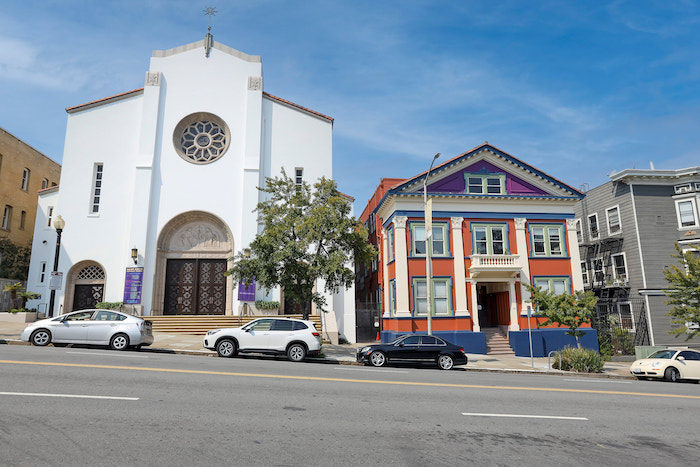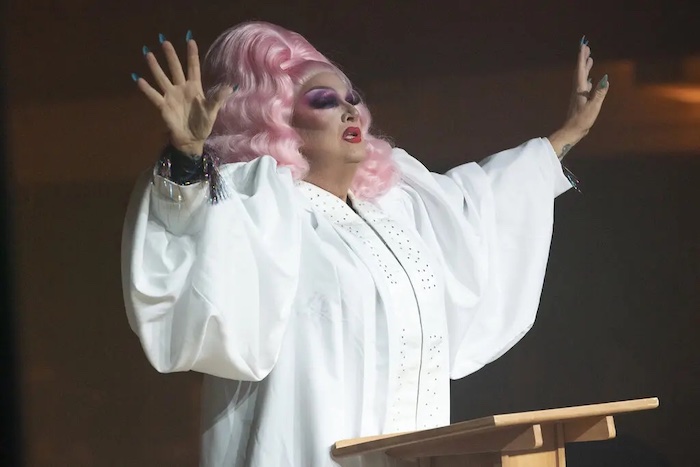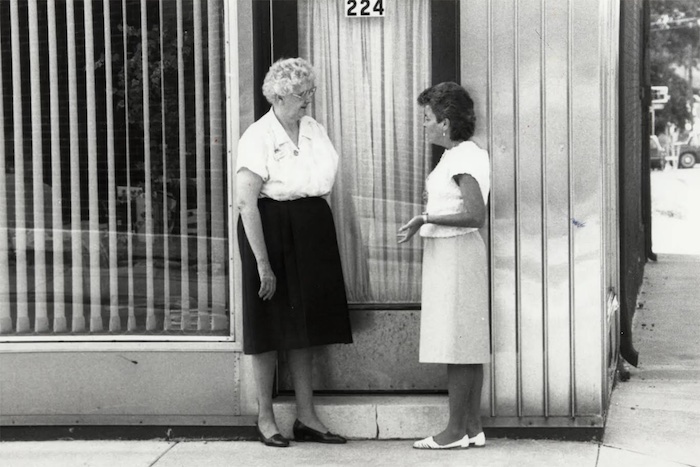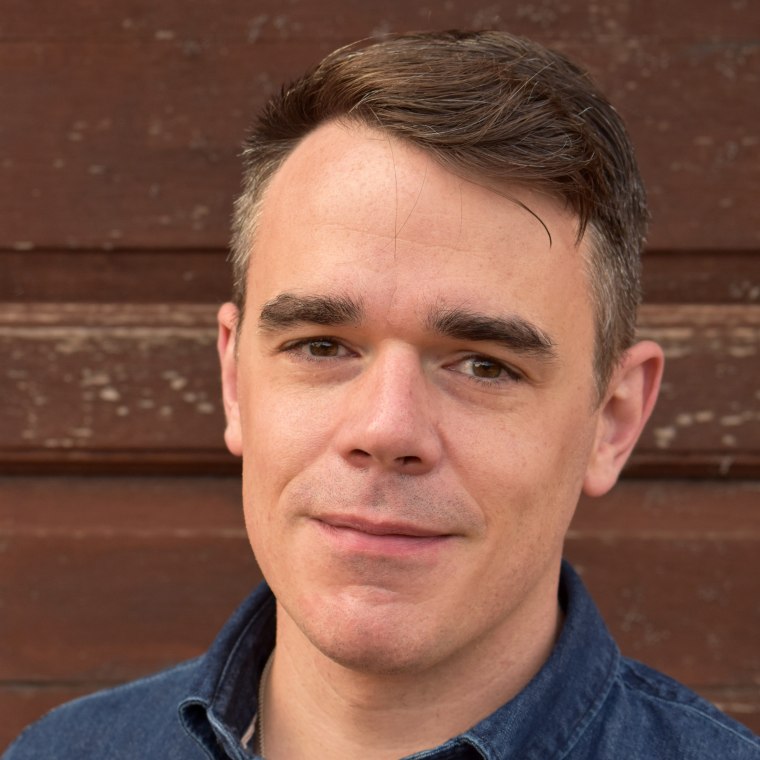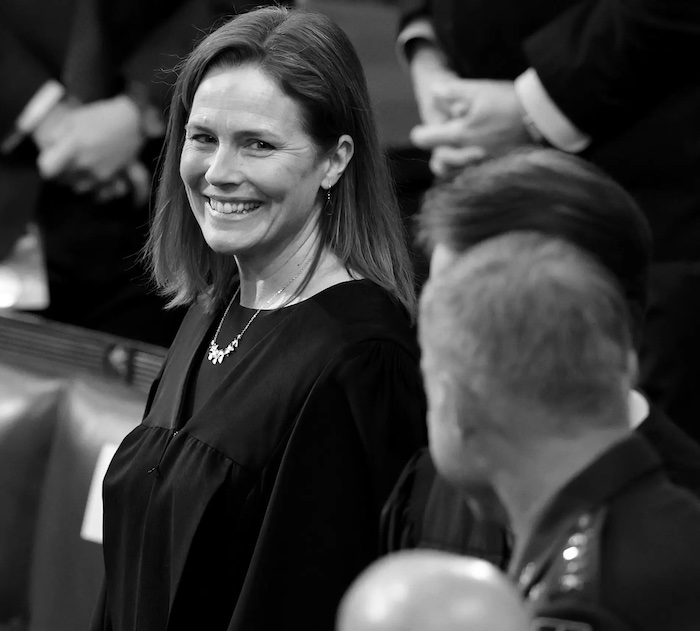
By Maureen Dowd
During her Supreme Court confirmation hearings, Amy Coney Barrett tried to reassure Democrats who were leery of her role as a “handmaid” in a Christian group called “People of Praise.”
The group has a male-dominated hierarchy and a rigid view of sexuality reflecting conservative gender norms and rejecting openly gay men and women. Men, the group’s decision makers, “headed” their wives.
Justice Barrett said then that she would not impose her personal beliefs on the country. “Judges can’t just wake up one day and say ‘I have an agenda — I like guns, I hate guns, I like abortion, I hate abortion’ — and walk in like a royal queen and impose their will on the world,” she said amicably. “It’s not the law of Amy. It’s the law of the American people.”
Yet that’s what seems to be coming. Like a royal queen, she will impose her will on the world. It will be the law of Amy. And Sam. And Clarence. And Neil. And Brett.

It’s outrageous that five or six people in lifelong unaccountable jobs are about to impose their personal views on the rest of the country. While they will certainly provide the legal casuistry for their opinion, let’s not be played for fools: The Supreme Court’s impending repeal of Roe will be owed to more than judicial argumentation. There are prior worldviews at work in this upheaval.
As a Catholic whose father lived through the Irish Catholics “need not apply” era, I’m happy to see Catholics do well in the world. There is an astonishing preponderance of Catholics on the Supreme Court — six out of the nine justices, and a seventh, Neil Gorsuch, was raised as a Catholic and went to the same Jesuit boys’ high school in a Maryland suburb that Brett Kavanaugh and my nephews did, Georgetown Prep.
My father was furious that Catholic presidential candidates Al Smith and J.F.K. had to defend themselves against scurrilous charges that, if they got to the White House, they would take their orders from the pope.
One must tread carefully here. A Catholic signed on to the Roe v. Wade decision and another was in the court majority that upheld it in Planned Parenthood v. Casey. Justice Sonia Sotomayor, a Catholic, has expressed support for Roe, and Chief Justice John Roberts, a conservative Catholic, may be working for a compromise decision that can uphold Roe.
Still, this Catholic feels an intense disquiet that Catholic doctrine may be shaping (or misshaping) the freedom and the future of millions of women, and men. There is a corona of religious fervor around the court, a churchly ethos that threatens to turn our whole country upside down.
I come from a family that hews to the Catholic dictates on abortion, and I respect the views of my relatives. But it’s hard for me to watch the church trying to control women’s sexuality after a shocking number of its own priests sexually assaulted children and teenagers for decades, and got recycled into other parishes, as the church covered up the whole scandal. It is also hard to see the church couch its anti-abortion position in the context of caring for women when it continues to keep women in subservient roles in the church.
Religiosity is a subject some Catholics on the court have been more open about in recent years.
Last year, at Thomas Aquinas College in California, Justice Samuel Alito fretted that there was growing cultural hostility toward Christianity and Catholicism. “There is a real movement to suppress the expression of anything that opposes the secular orthodoxy,” he said. Precisely which belief or practice of his religion does he feel he has been denied?
President Biden is a Catholic who is uncomfortable with the issue of abortion despite his support for Roe. Still, when Barrett was a law professor at Notre Dame, a group she belonged to unanimously denounced the university’s decision to honor Biden even though he didn’t support the church’s position on abortion.
We have no one in the public arena like Mario Cuomo, who respected the multiplicity of values in an open society and had the guts to wade into the lion’s den at Notre Dame in 1984.
“The Catholic who holds political office in a pluralistic democracy — who is elected to serve Jews and Muslims, atheists and Protestants, as well as Catholics — bears special responsibility,” Cuomo said. “He or she undertakes to help create conditions under which all can live with a maximum of dignity and with a reasonable degree of freedom; where everyone who chooses may hold beliefs different from specifically Catholic ones — sometimes contradictory to them; where the laws protect people’s right to divorce, to use birth control and even to choose abortion.”
The explosive nature of Alito’s draft opinion on Roe has brought to the fore how radical the majority on the court is, willing to make women fit with their zealous worldview — a view most Americans reject. It has also shown how radical Republicans are; although after pushing for this result for decades, because it made a good political weapon, they are now pretending it’s no big deal. We will all have to live with the catastrophic results of their zealotry.
Complete Article ↪HERE↩!


